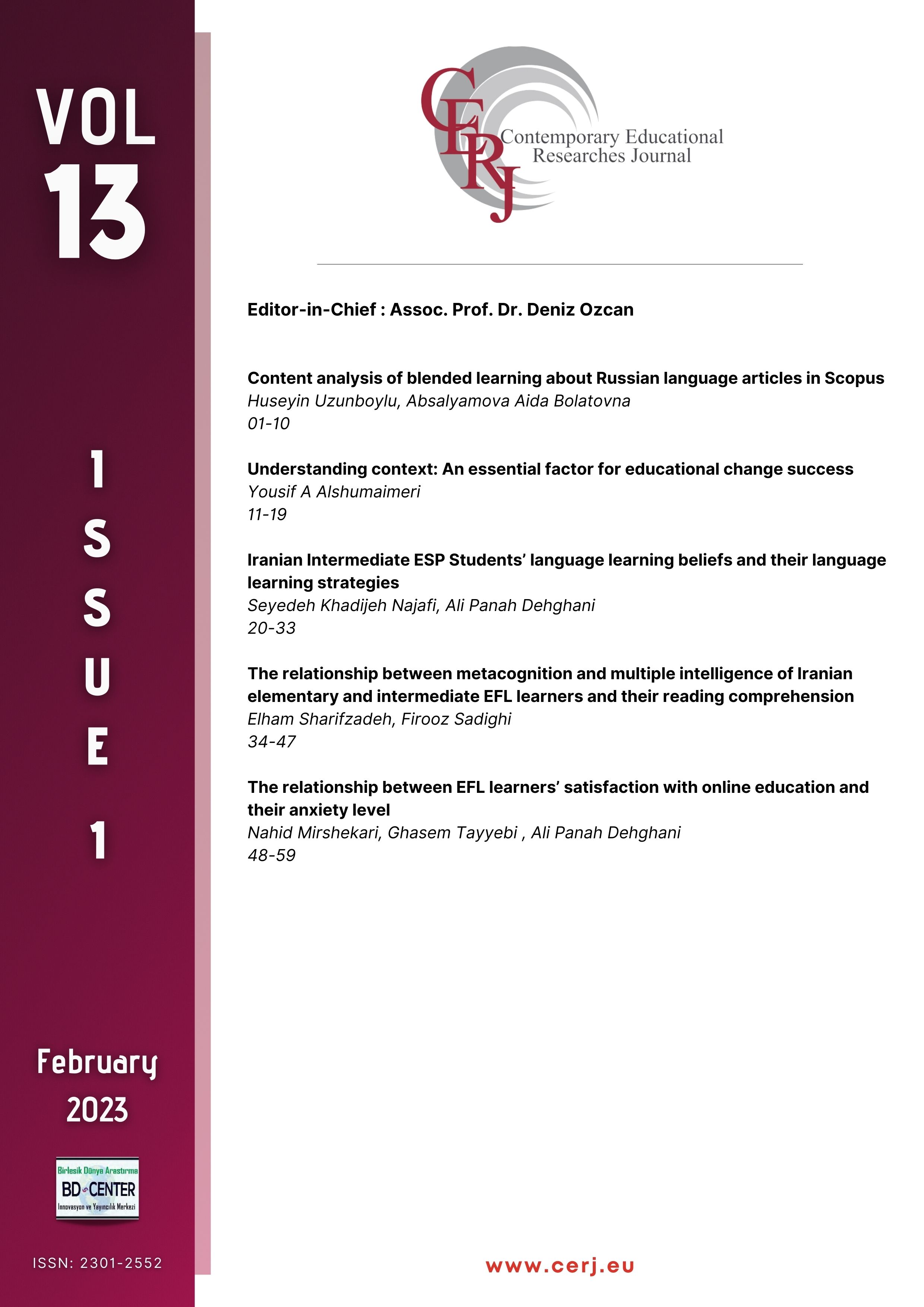The relationship between EFL learners’ satisfaction with online education and their anxiety level
Main Article Content
Abstract
The present study aimed to investigate the relationship between Iranian senior high school EFL learners’ satisfaction with online education and their anxiety level during COVID-19 outbreak. To this end, 180 students from two senior high schools were asked to participate in this study. Based on the performance of the participants on the Quick Placement Test, the researcher recruited 100 students through availability sampling. To determine the anxiety level of the participants, the Foreign Language Classroom Anxiety Scale was employed. Moreover, the satisfaction questionnaire was used to check the learners’ satisfaction with online education. The Pearson correlation was run to determine the correlation between different levels of anxiety and e-learners’ satisfaction. The results indicated that there was a significant negative correlation between these variables. In other words, as the anxiety level of the participants increased, their satisfaction with online education decreased to a significant extent.
Keywords: Anxiety levels, EFL elementary learners, e-learners’ satisfaction;
Downloads
Article Details

This work is licensed under a Creative Commons Attribution-NonCommercial-NoDerivatives 4.0 International License.
Authors who publish with this journal agree to the following terms:
- Authors retain copyright and grant the journal right of first publication with the work simultaneously licensed under a Creative Commons Attribution License that allows others to share the work with an acknowledgement of the work's authorship and initial publication in this journal.
- Authors are able to enter into separate, additional contractual arrangements for the non-exclusive distribution of the journal's published version of the work (e.g., post it to an institutional repository or publish it in a book), with an acknowledgement of its initial publication in this journal.
- Authors are permitted and encouraged to post their work online (e.g., in institutional repositories or on their website) prior to and during the submission process, as it can lead to productive exchanges, as well as earlier and greater citation of published work (See The Effect of Open Access).
